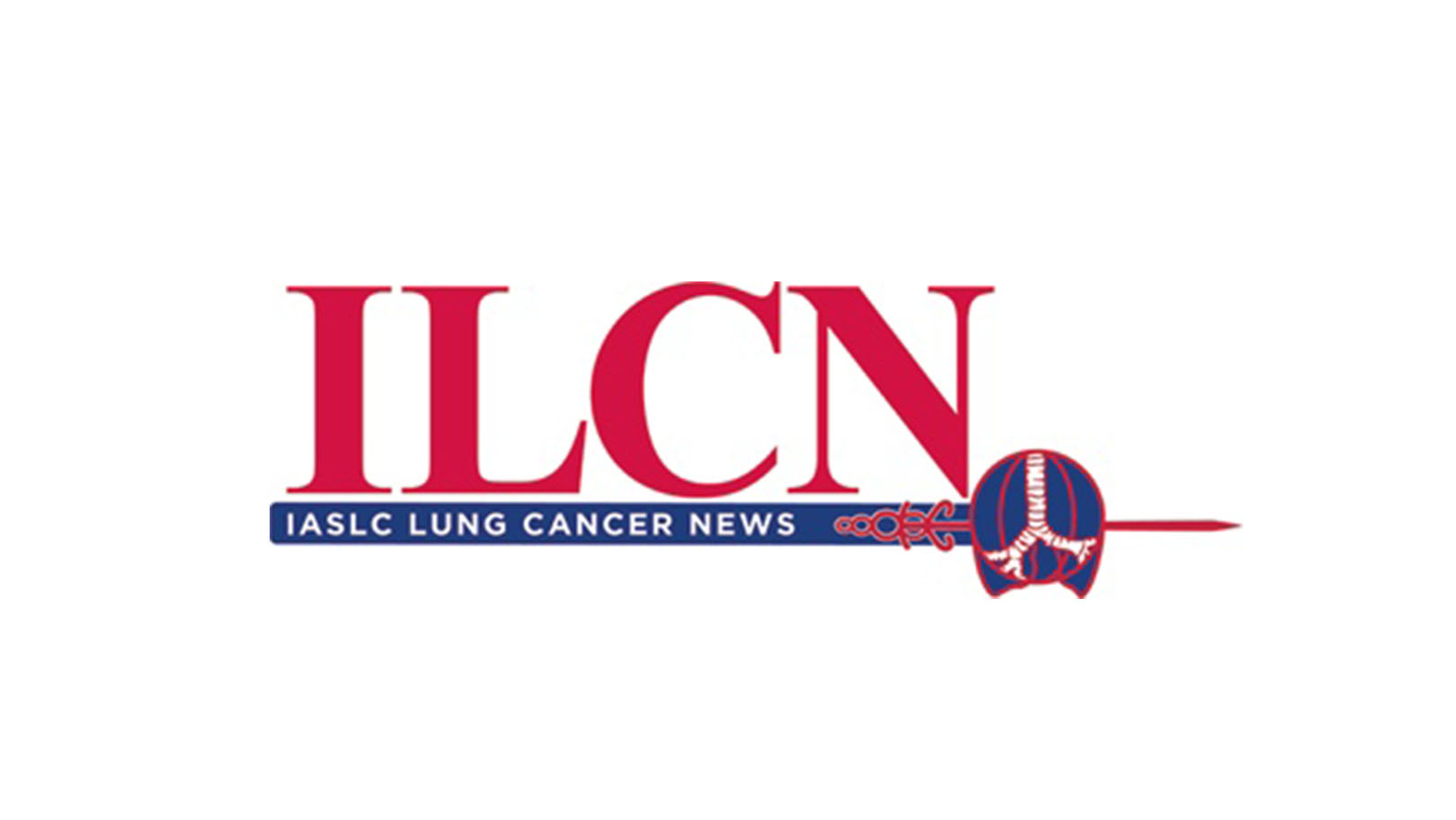Speaking as a medical oncologist who cares for patients with lung cancer, the present is filled with much hope. There has been a profusion of studies that report increasingly improved outcomes for patients with lung cancer, both in early and advanced stages.
Specifically, for a patient with advanced lung cancer with an EGFR-sensitizing mutation, the National Comprehensive Cancer Network and the Pan-Asian Adapted European Society for Medical Oncology Guidelines list seven to eight first-line therapy options.1,2 These choices may be broadly divided into single-agent oral tyrosine kinase inhibitors (TKIs)—both early-generation oral TKIs such as gefitinib, erlotinib, and afatinib, and newer oral TKIs such as dacomitinib and osimertinib—and combination strategies including an oral TKI with VEGF inhibitors such as ramucirumab and bevacizumab, and an oral TKI with chemotherapy.
The three early-generation oral TKIs have broadly similar results and outcomes: response rates of approximately 50% to 80%, median PFS rates of approximately 8 to 11 months, and median OS rates of approximately 19 to 35 months.3 All the other options—that is, new-generation oral TKIs and combination strategies, either with VEGF inhibitors or with intravenous chemotherapy—improve the disease control and PFS to a far greater extent compared to monotherapy with the earlier-generation oral TKIs. The caveat to this statement is that these newer options have not been compared to afatinib; however, afatinib has been compared to other first-generation oral TKIs and was shown to have similar activity. The LUX-Lung 7 trial reported a statistically significant but clinically irrelevant prolongation in median PFS from 10.9 to 11 months (HR = 0.73; [95% CI: 0.57-0.95]; p = 0.017), and similarly, a median OS of 27.9 and 24.5 months in the afatinib and gefitinib arms, respectively (median follow-up, 42.6 months; HR = 0.86; 95% CI: 0.66‒1.12, p = 0.258).4,5
Out of the newer options, dacomitinib, osimertinib, and the combination of an oral TKI with chemotherapy have all been shown to improve OS.6-9 Thus, we are now in the enviable position of being able to offer multiple different options to our patients with EGFR-mutated lung cancer, but this raises questions as to what is the optimal treatment and what is the best way to sequence these various therapies. Although the National Comprehensive Cancer Network does not yet include the option of an oral TKI with chemotherapy in their recommendations for the first-line therapy of a patient with EGFR-mutated NSCLC,1 this approach has the maximum amount of clinical evidence to date. In the modern era, six randomized trials (two in patients with molecularly unselected lung cancer and four exclusively in patients with EGFR-positive lung cancer) have studied this concept in various forms. These forms include the intercalated approach, in which the oral TKI is administered on the days when the patient is not receiving chemotherapy; the sequential alternating approach, in which the oral TKI is given for several weeks followed by some cycles of chemotherapy, and then the cycle is repeated; and finally, the concurrent approach, in which the oral TKI and the chemotherapy are given together. Table 1 gives additional details of the two recent randomized trials that were conducted in a cohort of patients with non-molecularly driven lung cancer; Table 2 provides the details of the randomized trials that have been conducted in patients with EGFR-mutated NSCLC.
Recent Data
To summarize the data from these randomized trials, the combination of a first-generation oral TKI with pemetrexed and carboplatin chemotherapy significantly prolonged response rate, PFS, and OS, with an increase in adverse events over oral TKIs alone, but with no worsening in quality of life (QoL).
Updated results from the FLAURA trial were very impressive,7 but a few caveats remain. The FLAURA study is the only randomized phase III study that has proven the efficacy of osimertinib compared to first-generation oral TKIs, whereas the benefit of a combination of an oral TKI with chemotherapy has been proven in six randomized controlled trials. The predefined subset analysis of the FLAURA study suggested that osimertinib may not be as efficacious in Asian patients; for the 347 Asian patients enrolled, the HR for death was 1.00 (95% CI: 0.75, 1.32), whereas for the 209 non-Asian patients, the HR was 0.54 (95% CI: 0.38, 0.77). Both the NEJ00914 and the Tata Memorial Hospital study8 were conducted exclusively in Asian patients, and thus the combination of an oral TKI with chemotherapy has a proven efficacy in the Asian population. The combination of an oral TKI with chemotherapy in the first-line setting also allows the patients to get exposed to multiple effective lines of therapy, especially to osimertinib in the second line. In the FLAURA study, only 18% of the patients in the osimertinib arm received cytotoxic chemotherapy as the first subsequent therapy, whereas 47% of the patients in the comparator group (first-generation oral TKI) received osimertinib as the first subsequent therapy post-progression. However, there are unassailable arguments for osimertinib in the first line, including the convenience of oral tablets, avoidance of intravenous chemotherapy, low toxicity, and maintenance of QoL. Of note, there was no worsening of the QoL in the combination oral TKI with chemotherapy arm as compared to the gefitinib-alone arm in the NEJ009 study.
The major stumbling blocks to the widespread use of osimertinib are accessibility and affordability. As of June 30, 2020, osimertinib in the first-line setting for EGFR-mutated lung cancer is approved in 78 out of 195 countries including the United States, China, Japan, and the European Union. Public funding is available in only 17 of these countries. The exceedingly high cost of the medicine severely limits its use. Recently, the National Institute for Health and Care Excellence did not approve the use of osimertinib for the first-line treatment of patients with EGFR-mutated NSCLC; the Institute ruled that the cost-effectiveness estimates for osimertinib were beyond the resources of the National Health Services.15 The affordable and widely accessible generics available for the early-generation oral TKIs as well as chemotherapy allows for their use in most countries.
The Pan-Asian Adapted European Society for Medical Oncology Guidelines have included the combination of an oral TKI with chemotherapy in the first-line setting for patients with EGFR-mutated lung cancer.2 Thus, this combination, in our view, is ready for primetime use.
Table 1. Randomized Trials Conducted to Evaluate the Addition of an EGFR-Directed Oral TKI to Chemotherapy in Patients With Non-Molecularly Driven Advanced NSCLC
|
No. |
Trial |
Trial Design |
Patients |
Location |
Sample Size |
Arms |
ORR |
Duration of Response |
PFS |
OS |
Toxicities |
QoL |
|
1 |
FASTACT (First-line Asian Sequential Tarceva and Chemotherapy Trial) (2009)9 |
Randomized phase II |
Age ≥ 18 years with stage IIIB/IV NSCLC, PS 0-1, no brain metastases. 7 of 17 patients (41%) had EGFR mutation. |
19 centers in 7 Asian (Asian patients, 94%) and Pacific countries (Caucasian patients, 6%) |
154; GC-erlo: 76, GC-placebo: 78
|
Gemcitabine 1250 mg/m2 D1,8 + carboplatin AUC 5 or cisplatin 75 mg/m2 D1 every 28 days for maximum 6 cycles with: Arm A (GC-erlo): erlotinib 150 mg orally daily on D15-28 or Arm B (GC-placebo: placebo. |
GC-erlo: 35.5%, GC-placebo: 24.4%; adjusted OR: 1.24; 95% CI, 0.86-3.57; p = 0.12 |
GC-erlo: 9.1 months, GC-placebo: 5.5 months; HR, 0.40; 95% CI, 0.20-0.79; p = 0.0057 |
GC-erlo: 6.7 months, GC-placebo: 5.4 months; HR, 0.47; 95% CI, 0.33-0.68; p = 0.0002 |
GC-erlo: 17.1 months, GC-placebo: 17.4 months; HR, 1.09: 95% CI, 0.70-1.69; p = 0.42 |
Grade 3 TRAE: GC-erlo: 32%, GC-placebo: 30%; Grade 4 TRAE: GC-erlo: 8%, GC-placebo: 9%; most common serious AE: anemia: 5% in each arm; skin rash in GC-erlo: 65% vs. GC-placebo: 34% (mostly grade 1 and 2) |
NR |
|
2 |
FASTACT2 (2013)10 |
Randomized phase III |
Age ≥ 18 years with stage IIIB/IV NSCLC, PS 0-1, no brain metastases. 97 of 241 (40%) had activating EGFR mutations: GC-erlo arm, 49 of 120 (40.8%); GC-placebo: 48 of 121 (39.7%). |
28 centers in China (9), Hong Kong (4), Indonesia (3), South Korea (1), the Philippines (3), Taiwan (4), and Thailand (4) |
451; GC-erlo: 226, GC-placebo: 225 |
Gemcitabine 1250 mg/m2 D1,8 + carboplatin AUC 5 or cisplatin 75 mg/m2 D1 every 28 days for maximum 6 cycles with: GC-erlo: erlotinib 150 mg orally daily on D15-28 or GC-placebo: placebo. |
GC-erlo: 44%, GC-placebo: 16%; difference = 28% (20-37), p < 0.0001; EGFR mutated: GC-erlo: 84%, GC-placebo: 15%; difference = 69% (53.5-84.7), p < 0.0001 |
GC-erlo: 11.2 months (IQR, 5.8-18.5); GC-placebo: 5.6 months (IQR, 3.7-7.9) |
GC-erlo: 7.6 months, GC-placebo: 6 months; HR, 0.57; 95% CI, 0.47-0.69; p < 0.0001; EGFR mutated: GC-erlo: 16.8 months, GC-placebo: 6.9 months; HR, 0.25; 95% CI, 0.16-0.39; p < 0.0001 |
GC-erlo: 18.3 months, GC-placebo: 15.2 months; HR, 0.79; 95% CI, 0.64-0.99; p = 0.042; EGFR mutated: GC-erlo: 31.4 months, GC-placebo: 20.6 months; HR, 0.48; 95% CI, 0.27-0.84; p = 0.0092 |
Notable grade 3 and higher AEs: GC-erlo vs. GC-placebo: rash 5% vs. <1%; neutropenia: 29% vs. 25%; thrombocytopenia: 14% vs. 14% |
Time to symptomatic progression: GC-erlo: 7.3 months, GC-placebo: 6.7 months; HR, 0.82; 95% CI, 0.67-1.01; p = 0.065. Time to deterioration TOI: HR, 0.78; 95% CI, 0.63-0.95; p = 0.015. Time to deterioration in QoL by FACT-L: GC-erlo: 6.3 months, GC-placebo: 5.7 months; HR, 0.77; 95% CI, 0.63-0.95; p = 0.012 |
Acronyms: AE, adverse event; AUC, area under the curve; D, day; erlo, erlotinib; GC, gemcitabine + carboplatin; IQR, interquartile range; No., number; OR, odds ratio; ORR, objective response rate; PS, performance status ; PFS, progression free survival, OS, overall survival; QoL, quality of life; TOI, trial outcome index; TRAE, treatment-related adverse events; EGFR, epidermal growth factor receptor; AUC, area under the curve; HR, hazard ratio; CI, confidence interval; NR, not reported; NSCLC, non-small-cell lung cancer; AE, adverse events; FACT-L, Functional Assessment of Cancer Therapy-Lung
Table 2. Randomized Trials Conducted to Evaluate the Addition of an EGFR-Directed Oral TKI to Chemotherapy in Patients With EGFR-Mutated Advanced NSCLC
|
No. |
Trial |
Trial Design |
Patients |
Location |
Sample Size |
Arms |
ORR |
Duration of Response |
PFS |
OS |
Toxicities |
QoL |
|
1 |
Cheng (2016)11 and Yang (2020)12 |
Randomized phase II |
Age ≥ 18 years (≥ 20 years in Japan and Taiwan) with stage IV NSCLC, PS 0-1, with activating EGFR mutation (exon 19 deletion or exon 21 L858R point mutation). |
35 East Asian sites in China, Japan, Republic of Korea, and Taiwan |
195 patients, randomized 2:1; P+G: 129, G: 66 |
P+G: pemetrexed 500 mg/m2 D1 Q21 days + gefitinib 250 mg orally daily. G: gefitinib 250 mg orally daily. |
P+G: 80%, G: 74% |
P+G: 15.4 months, G: 11.3 months; HR, 0.74; 95% CI, 0.50-1.08; p = 0.122 |
P+G: 16.2 months; G: 11.1 months; HR, 0.67; 95% CI, 0.5-0.9; p = 0.009 |
P+G: 43.4 months, G: 36.8 months; HR, 0.77; 95% CI, 0.5-1.2; p = 0.105 |
Grade 3 and higher toxicities in P+G vs. G: fatigue, 5.6% vs. 0%; oral mucositis, 4% vs. 0%; anorexia, 4% vs. 0%; rash, 1.6% vs. 1.5%; paronychia, 1.6% vs. 0% |
NR |
|
2 |
NEJ005/TCOG0902 (2015)13 |
Randomized phase II |
Age 20-75 years, chemotherapy-naive, with stage IIIB, IV, or relapsed non-squamous NSCLC with EGFR mutations (exon 19 deletions, L858R, L861Q, G719A, G719C, or G719S), PS 0–1. No symptomatic brain metastases, no exon 20 T790M mutation. |
Japan |
80 patients; C: 41, SA: 39 |
Concurrent: gefitinib 250 mg orally daily with pemetrexed 500 mg/m2 D1 + carboplatin AUC 6 on D1 every 21 days for up to 6 cyclesàmaintenance: pemetrexed 500 mg/m2 every 21 days with gefitinib 250 mg orally continues. Sequential alternating: gefitinib 250 mg orally daily x 8 weeks, then pemetrexed + carboplatin x 2 cycles. Repeat entire course 3 xàalternating pemetrexed maintenance and oral gefitinib. |
C: 90.2%, SA: 82.1%; p = 0.34 |
NR |
C: 17.5 months, SA: 15.3 months; HR, 0.68; 95% CI 0.42–1.12; p = 0.13. |
C: 41.9 months, SA: 30.7 months; HR, 0.58; 95% CI, 0.34-0.97; p = 0.036 |
Grade 3 and higher toxicities in C vs. SA: no significant difference; neutropenia, 48.8% vs. 46.2%; anemia, 34.1% vs. 12.8%; thrombocytopenia, 41.5% vs. 28.2%; diarrhea, 9.8% vs 0%; AST/ALT elevation, 9.8% vs. 20.5% |
NR |
|
3 |
NEJ009 (2020)14 |
Randomized phase III |
Age 20-75 years, chemotherapy-naive with stage IIIB, IV, or relapsed non-squamous NSCLC with EGFR mutations (exon 19 deletions, L858R, L861Q, G719A, G719C, or G719S), PS 0–1. No symptomatic brain metastases, no exon 20 T790M mutation. |
47 institutions in Japan |
342 patients; GCP: 170, G: 172
|
GCP: gefitinib 250 mg orally once every day + carboplatin AUC 5 and pemetrexed 500 mg/m2 every 21 days for maximum 6 cycles, followed by concurrent gefitinib and pemetrexed maintenance. G: gefitinib 250 mg orally once every day. |
GCP: 84%, G: 67%; p < 0.001 |
NR |
GCP: 20.9 months, G: 11.2 months; HR, 0.49; 95% CI, 0.39-0.62; p < 0.001 |
GCP: 50.9 months, G: 38.8 months; HR, 0.72; 95% CI, 0.55-0.95; p = 0.021 |
Grade 3 and higher toxicities in GCP vs. G: neutropenia, 31.2% vs. 0.6%; anemia, 21.2% vs. 2.3%; thrombocytopenia, 17.1% vs. 0%; hepatic dysfunction, 12.4% vs. 22.2% |
Lower global QoL scores in the GCP arm at 8 weeks, no difference at the other time points |
|
4 |
Tata Memorial Hospital trial (2020)8 |
Randomized phase III |
Age ≥ 18 years with NSCLC with EGFR mutations in exons 19, 21, or 18; PS 0-2. Brain metastases permitted; exon 20 T790M mutation permitted, as long as patient also had a sensitizing EGFR mutation. |
Single center in Mumbai, India |
350 patients; GCP: 174, G: 176 |
GCP: gefitinib 250 mg orally once every day + carboplatin AUC 5 and pemetrexed 500 mg/m2 every 21 days for 4 cycles, followed by concurrent gefitinib and pemetrexed maintenance. G: gefitinib 250 mg orally once every day. |
GCP: 75.3%, G: 62.5%; p = 0.01 |
NR |
GCP: 16 months, G: 8 months; HR, 0.51; 95% CI, 0.39-0.66; p < 0.001 |
GCP: NR, G: 17 months; HR, 0.45; 95% CI, 0.31-0.65; p < 0.001 |
Grade 3 or higher toxicities (clinically relevant): GCP, 50.6% vs. G, 25.3%; p < 0.001. Grade 3 and higher toxicities in GCP vs. G: neutropenia, 16% vs 0%; anemia, 19% vs. 1%; febrile neutropenia, 11% vs. 0%; non-neutropenic infection, 11% vs. 6%; diarrhea, 14% vs. 9%; hypertension, 26% vs. 24%; hyponatremia, 24% vs. 16% |
NR |
Acronyms: AE, adverse event; ALT, alanine aminotransferase; AST, aspartate aminotransferase; AUC, area under the curve; C, concurrent; D, day; erlo, erlotinib; gr, grade; G, gefitinib; GC, gemcitabine plus carboplatin; GCP, gefitinib plus carboplatin plus pemetrexed; IQR, interquartile range; No., number; NR, not reported; ORR, objective response rate; PFS, progression free survival, OS, overall survival; NSCLC, non-small-cell lung cancer; EGFR, epidermal growth factor receptor; P, pemetrexed; PS, performance status; Q, every; QoL, quality of life; SA, sequential alternating; TOI, trial outcome index; TRAE, treatment-related adverse events; HR, hazard ratio; CI, confidence interval
References:
- Ettinger DS, Wood DE, Aggarwal C, et al. NCCN Guidelines insights: non-small cell lung cancer, Version 1.2020. J Natl Compr Canc Netw. 2019;17(12):1464-1472.
- Wu YL, Planchard D, Lu S, et al. Pan-Asian adapted Clinical Practice Guidelines for the management of patients with metastatic non-small-cell lung cancer: a CSCO-ESMO initiative endorsed by JSMO, KSMO, MOS, SSO and TOS. Ann Oncol. 2019;30(2):171-210.
- Rajendra A, Noronha V, Joshi A, Patil VM, Menon N, Prabhash K. Epidermal growth factor receptor-mutated non-small-cell lung cancer: a primer on contemporary management. Cancer Res Stat Treat. 2019;2(1):36-53.
- Park K, Tan EH, O’Byrne K, et al. Afatinib versus gefitinib as first-line treatment of patients with EGFR mutation-positive non-small-cell lung cancer (LUX-Lung 7): a phase 2B, open-label, randomised controlled trial. Lancet Oncol. 2016;17(5):577-589.
- Paz-Ares L, Tan EH, O’Byrne K, et al. Afatinib versus gefitinib in patients with EGFR mutation-positive advanced non-small-cell lung cancer: overall survival data from the phase IIb LUX-Lung 7 trial. Ann Oncol. 2017;28(2):270-277.
- Wu YL, Cheng Y, Zhou X, et al. Dacomitinib versus gefitinib as first-line treatment for patients with EGFR-mutation-positive non-small-cell lung cancer (ARCHER 1050): a randomised, open-label, phase 3 trial. Lancet Oncol. 2017;18(11):1454-1466.
- Ramalingam SS, Vansteenkiste J, Planchard D, et al. Overall survival with osimertinib in untreated, EGFR-mutated advanced NSCLC. N Engl J Med. 2020;382(1):41-50.
- Noronha V, Patil VM, Joshi A, et al. Gefitinib versus gefitinib plus pemetrexed and carboplatin chemotherapy in EGFR-mutated lung cancer. J Clin Oncol. 2020;38(2):124-136.
- Mok TS, Wu YL, Yu CJ, et al. Randomized, placebo-controlled, phase II study of sequential erlotinib and chemotherapy as first-line treatment for advanced non-small-cell lung cancer. J Clin Oncol. 2009;27(30):5080-5087.
- Wu YL, Lee JS, Thongprasert S, et al. Intercalated combination of chemotherapy and erlotinib for patients with advanced stage non-small-cell lung cancer (FASTACT-2): a randomised, double-blind trial. Lancet Oncol. 2013;14(8):777-786.
- Cheng Y, Murakami H, Yang PC, et al. Randomized phase II trial of gefitinib with and without pemetrexed as first-line therapy in patients with advanced nonsquamous non-small-cell lung cancer with activating epidermal growth factor receptor mutations. J Clin Oncol. 2016;34(27):3258-3266.
- Yang JC, Cheng Y, Murakami H, et al. A randomized phase 2 study of gefitinib with or without pemetrexed as first-line treatment in nonsquamous NSCLC with EGFR mutation: final overall survival and biomarker analysis. J Thorac Oncol. 2020;15(1):91-100.
- Sugawara S, Oizumi S, Minato K, et al. Randomized phase II study of concurrent versus sequential alternating gefitinib and chemotherapy in previously untreated non-small cell lung cancer with sensitive EGFR mutations: NEJ005/TCOG0902. Ann Oncol. 2015;26(5):888-894.
- Hosomi Y, Morita S, Sugawara S, et al. Gefitinib alone versus gefitinib plus chemotherapy for non-small-cell lung cancer with mutated epidermal growth factor receptor: NEJ009 study. J Clin Oncol. 2020;38(2):115-123.
- National Institute for Health and Care Excellence. Osimertinib for untreated EGFR mutation-positive non-small-cell lung cancer. Accessed July 2, 2020. https://www.nice.org.uk/guidance/TA621/chapter/1-Recommendations






